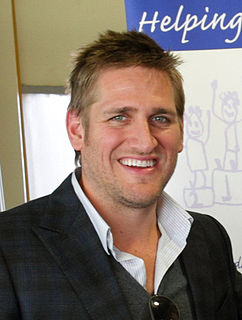A Quote by Gore Vidal
Like most readers, I tend to skip the acknowledgements at the beginnings of books: the 'To-My-Wife-Without-Whose-Invaluable-Assistance' kind of thing.
Quote Topics
Related Quotes
I've always kind of thought that reviews written by readers for readers are a kind of private space between consumers. It's their right to say anything they like about your material, and authors need to know that and respect that. As for my end, I'm aware of what my sales are, so I know that my books are working in the marketplace, at least for now, and beyond that, I have to just do my thing and stay focused.
The problem for cookery-bookery writers like me is to understand the extent of our readers' experience. I hope have solved that riddle in my books by simply telling everything. The experienced cook will know to skip through the verbiage, but the explanations will be there for those who still need them.
At first blush, it seems odd that loser lit books are rejected initially, then go on to be fiercely loved by legions of readers. This apparent contradiction might be due to the fact that if they didn't screw up their lives, most losers would be the kind of power-elite, Type A go-getters whom readers love to hate.
The fact remains that books that really put gay people in the center, and especially books that do so in a way that is sexually explicit, tend not to get a great deal of mainstream attention: they don't tend to sell well, and they don't tend to win major awards. This makes the occasional exception, like Alan Hollinghurst, all the more remarkable.
Certainly, light fiction exists and encompasses mysteries or second-class romance novels, books that are read on the beach, whose only aim is to entertain. These books are not concerned with style or creativity - instead they are successful because they are repetitive and follow a template that readers enjoy.




































